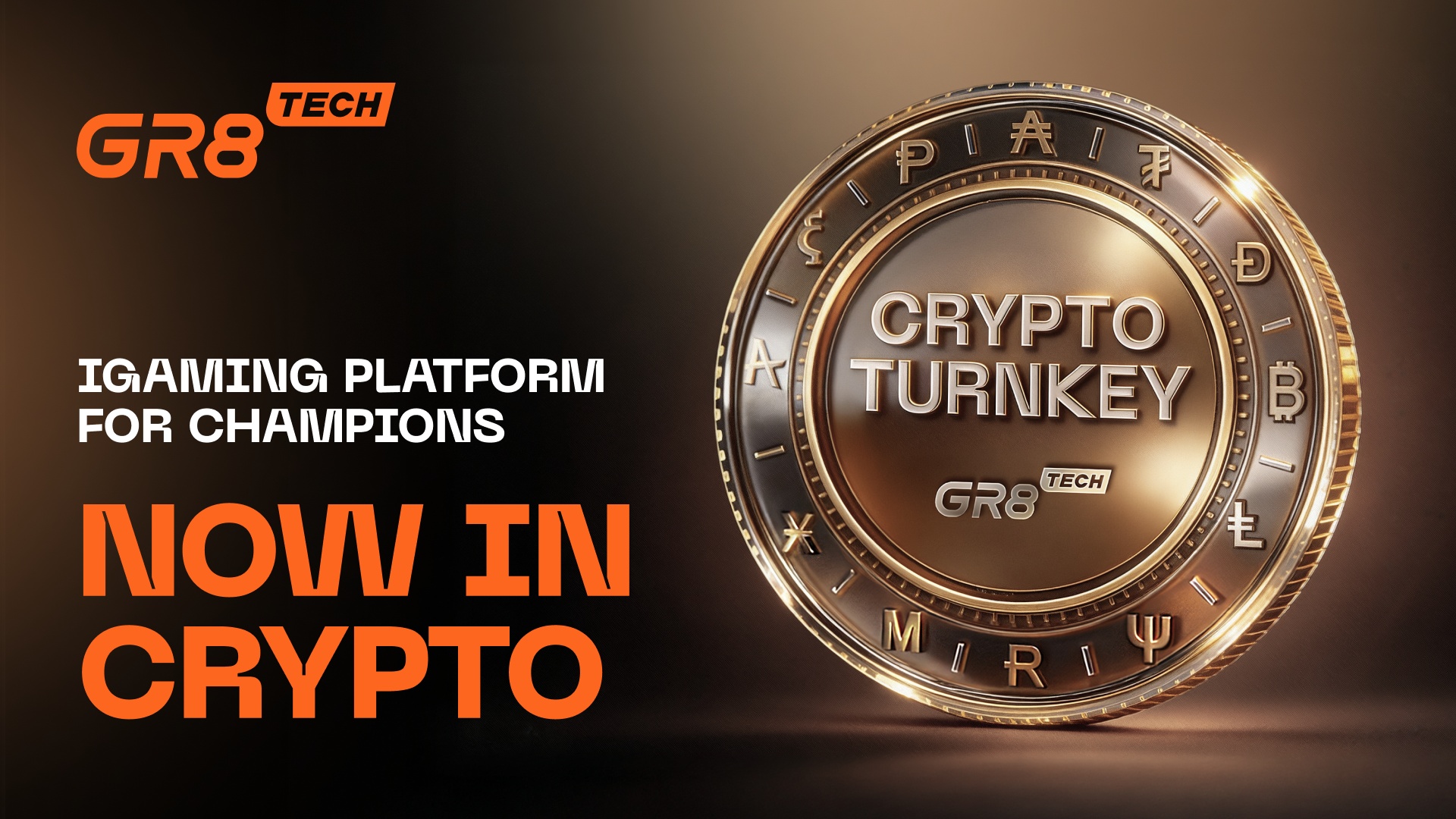Blockchain
Exclusive Q&A with Alastair Johnson, CEO of Nuggets

Let’s start with your personal story. Our readers love to learn more about top entrepreneurs. Tell us about yourself. How have you become the person you are today?
AJ: I come from the North of the UK (The Midlands if you’re from further North). I learned respect and the value of teamwork at an early stage—a value I still apply to my work to this day. I went to Uni, developed my thinking, then after leaving got taken down a peg or two along the way. I started in tech during the last recession, which, as it turns out, is a handy training ground for the modern world. As an early adopter of the internet, I quickly rose to the challenge. I had my own tech business for a good number of years, and was fortunate enough to work with some of the best tech-heads in Skype and Microsoft. After bumping into the pain of privacy and security problems one too many times, I strived to find a better way.
I always liked the Jeff Bezos quote where he had to tell everyone what the internet was when he was starting Amazon. I know how he feels; it resembles the initial stages of blockchain.
You pride yourself on being a problem solver. Perhaps, Nuggets is a direct result of that trait. You have said that in other interviews. But could you share the details behind what led you to the idea behind Nuggets?
AJ: I had my personal and payment details used fraudulently and had to wait two weeks for a bit of plastic to turn up. After having to input my card number back into numerous services, I thought: “there has to be a better way than this.”
Always lead with the problem, not the tech or the product. Blockchain resolved many of the boxes that previous tech offerings hadn’t, allowing for a fundamental change in how personal data was stored, owned, and controlled. I was lucky to have a different perspective to those that had come before, and driven enough to set out on the journey that everyone else had shied away from.
The idea was great and the technology was ripe. But how hard was it to start and develop Nuggets? We would like to hear your struggles and victories?
AJ: I think one of the more recent examples is when it came time to self-quarantine amid the coronavirus outbreak. Coming to the realisation that I had been effectively self-isolating already, demonstrated how consumed I was by the work.
Nonetheless, it’s been an amazing journey of highs and lows. From having to explain, in the early days, what blockchain was and the potential it had (I feel you Jeff), to fantastic opportunities that I would have never been afforded if I wasn’t doing this. I’ve felt on top of the world and—sometimes—like I’ve been knocked off it, but I always end up with the need to do it all again the next day, with an almost evangelical zeal.
I now have a kinship of understanding and appreciation for anyone who has been a founder, big or small, and when you meet other founders, it’s like you’re talking the same language and an empathy that is hard to reach with others.
Nuggets’ motto is to “Take back control of your data”. Here are some novice’s doubts regarding the claim. First, wouldn’t it affect the data analytics thing that marketers and companies use a great deal at present?
AJ: You can still have behavioral data on the merchant or services side, which can bring benefits to both merchants and customers. We don’t believe, however, that you need to know my first dog’s name and my email to facilitate an order for socks. There’s still metadata available, but not the user’s personal data. Through reputation and provenance, greater value can be gained than ever before. The old model is broken—if the data breaches don’t teach you that, the regulator will.
Following on the previous question, second, is the data really safe when using Nuggets? Data has to be stored somewhere, the users’ devices, for example, which makes the data vulnerable. Isn’t it?
AJ: With Nuggets, the data is encrypted at the source, with a private key that only the user has access to—negating the use of usernames and passwords. The nuggets of information are encrypted individually, hashed on-chain, placed in decentralised storage, and atomised so only the private key holder can access and control them. We believe the future is going to be based around your identity—devices and products will simply act as an interface to the identity that travels with you. You will be your identity combined with multiple biometric verifications.
How have the users responded to this disruptive innovation? Could you tell us some stats about the customer reaction so far – both in terms of end-users and business providers?
AJ: We have had the most amazing response to Nuggets with tens of thousands of advocates. We’ve been approached by the top global banks, payment services, and merchants. And, to have the industry acknowledge the direction as well, has been amazing.
Nuggets has also won a number of high profile awards, including;
- The Blockchain Project of the Year at the FSTech Awards, beating HSBC and Commerzbank to the prize;
- The Best Innovation in Security Management award at the FDATA Open Finance Awards, after being recognized as the company that has done the most to protect consumer data.
- Shortlisted at the Europas Award for Hottest Tech Startup, and shortlisted for five awards categories at the Payments Awards — more nominations than any other company.
- They were one of only 10 out of 400 global businesses to make it into the final of UBS’s Future of Finance Challenge 2019, in the ‘Foundation Setting: Technology Enablement’ category.
- Finalist in the MoneyAge Awards for ‘Innovation in Consumer Finance’,
- Shortlisted for two payments awards alongside companies including HSBC and Mastercard for its use of biometrics and blockchain,
- Named winners of the Anti-Fraud or Security Solution of the Year 2018.
- Most Influential Women in Payments 2020 (not me, Seema)
- 10 best Payments Startups globally in Efma-Capgemini’s Financial NewTech Challenge 2020.
We usually focus on industry news related to gaming, betting and gambling. In what ways do you think Nuggets can be a game-changer for the gaming and gambling industry?
AJ: Like finance, the gaming industry is one of the most regulated in the world. Applying the same principles of identity verification, KYC, proof of age, verified payments with reputation and provenance, along with privacy and security, we are sure to make a resounding difference.
Just to clarify, what kind of technological adjustments do existing gambling, betting and igaming platforms have to make to incorporate Nuggets. Is it going to be seamless and quick?
AJ: Onboarding, Access, Payment, and Verification can be quickly executed through SDK, APIs, and micro service container models that make integration modular and easy.
We are going through a global business turmoil caused by the Corona outbreak. Once things get back to normal, how do you foresee the situation for block chain technology? Will a new beginning help block chain technology to gain more access and popularity? We would love to hear your views.
AJ: During times of upheaval, disruptors prevail. New technology has been proven time and time again to leapfrog the broken past in order to create a better future. Blockchain will be a part of that, along with other technologies—maybe even a sprinkle of 5G thrown into the mix.
About two years ago, you wrote an article that said “Europe has unbridled potential to become one of the leaders in fintech”? Has Europe lived up to your expectations? Do you still subscribe to this view or is there any change in estimate?
AJ: I still think the UK and Europe have some of the best potentials. This map of challenger banks by country globally shows that in 2016 the UK had 40 challenger banks. India, with the next biggest number, only had 8. This gives you a good idea of the potential in Europe compared to the rest of the world.
Blockchain
RPM APPOINTS WEB3 EXPERT STEVE WHYMAN TO LEAD ON BLOCKCHAIN STRATEGY

RPM, the specialist in retail and online betting and gaming, has announced that it has bolstered its digital markets capabilities with the appointment of Steve Whyman as Director of Web3 & Crypto.
Whyman joins RPM with a mandate to shape the credible adoption of blockchain technology within the global gaming industry, and will assist partners with a unique, high-level consultancy service that helps deliver faster routes to market using decentralised offerings and tokens.
This appointment internalises Steve Whyman’s institutional pedigree, having spent 25 years in senior trading and leadership roles with industry giants including Amundi, Aviva, and BlackRock, while he most recently served as Head of Debt Capital Markets at Fidelity International where he oversaw the $90bn fixed income primary markets portfolio and led the tokenisation of the firm’s money market fund.
With the added, potent combination of Web3 experience as founder and CEO at Fulminata Solutions, a digital capital markets boutique working with Layer-1 blockchains and prominent stablecoins, Whyman is well-positioned to translate digital finance innovations into practical gaming applications for RPM partners.
During his time at Fulminata Solutions, Whyman has established himself as a thought leader in the Web3 space with specific expertise in the Solana ecosystem. He currently serves as a Strategic Advisor to KEEL.FI, the largest allocator on Solana, and his new role will see this knowhow utilised to provide the gaming sector with a more seamless path to new business models, improved transparency, and new sustainable growth opportunities.
Richard Thorp, Founder at RPM, said: “Appointing Steve is a landmark moment for us as we take a major step forward in delivering on Web3’s promise. His background is exceptional. Blending the rigour of institutional finance and a first-rate, hands-on understanding of decentralised markets, we’re hugely confident that our partners will be able to reap the benefits of his expertise in bridging to new product and market opportunities in the space.”
Steve Whyman, RPM’s new Director of Web3 and Crypto, added: “I’m thrilled to join RPM at a pivotal time as the gaming industry moves beyond speculative Web3 trends towards implementing genuine utility. My focus will be on delivering major new value opportunities to clients in digital finance through consulting on various product improvements, such as instant settlement opportunities, smoother payment rails or executing on innovative, tokenised growth models.
“By fostering partnerships between RPM, our clients, and the leading, high-performance Layer-1 blockchains, we have a massive opportunity to build igaming-led systems that improve transparency, operational efficiency, and, critically, improve the bottom line, and working alongside Rich and the team, we’re in a strong position to genuinely lead Web3 gaming innovation from the front.”
The post RPM APPOINTS WEB3 EXPERT STEVE WHYMAN TO LEAD ON BLOCKCHAIN STRATEGY appeared first on Eastern European Gaming | Global iGaming & Tech Intelligence Hub.
Blockchain
GR8 Tech Launches Crypto Turnkey: High-Value iGaming Platform for Global Expansion

GR8 Tech has officially unveiled its Crypto Turnkey solution, a comprehensive platform designed to give iGaming operators a modern, multi-wallet infrastructure for global expansion. By integrating native multi-currency support from day one, the solution eliminates the need for third-party crypto vendors and complex technical integrations.
According to Denys Parkhomenko, CPO at GR8 Tech, the shift toward crypto is no longer optional for operators looking to dominate.
“Industry data shows crypto players deposit 35-50% more and bet with 40-60% higher frequency than traditional players,” says Parkhomenko. “The operators winning their markets are the ones acting on that data now, not waiting. We built Crypto Turnkey to make that move simple.”
Eliminating Payment Provider Bottlenecks
One of the most significant hurdles for modern iGaming businesses is the dependency on traditional payment providers. Regulatory hurdles or provider outages can delay launches or halt active businesses.
Crypto Turnkey removes these bottlenecks, allowing for:
-
Faster Market Entry: Go live quickly without waiting for lengthy traditional payment approvals.
-
Operational Stability: Payment uptime is controlled by the operator, ensuring a 24/7 uninterrupted revenue flow.
-
Full Compliance: The platform supports over 15 popular cryptocurrencies (including Bitcoin, Ethereum, and USDT) while maintaining strict KYC and responsible gambling standards through existing GR8 Tech modules.
Designed for the VIP Experience
High-stakes players are the lifeblood of the industry. In 2025, VIP players accounted for 47% of total turnover across GR8 Tech’s verticals. These users increasingly demand the privacy, speed, and high transaction limits that only blockchain can provide.
The Crypto Turnkey multi-wallet system provides the flexibility these premium segments expect:
-
Single Account, Multiple Currencies: Players can hold and switch between currencies instantly.
-
No Conversion Friction: Deposit and withdraw in crypto without losing value to unnecessary exchange fees.
-
Real-time Calculations: For games requiring fiat denominations, the system automatically handles balance segregation and exchange rate calculations.
Lower Fees and Zero Chargeback Risks
The economic advantages of the Crypto Turnkey solution are clear. While traditional fiat transactions typically cost between 2.5% and 5%, GR8 Tech’s solution slashes these costs to approximately 0.5%.
Furthermore, because blockchain transactions are irreversible, operators can say goodbye to chargeback fraud and the administrative nightmare of dispute management. Settlement times are also reduced from the standard 3-5 business days to just 10-30 minutes.
The Platform for Champions
When combined with the broader GR8 Tech ecosystem—including AI-driven personalization, advanced CRM tools, and geo-specific “Champion setups”—the Crypto Turnkey solution becomes a powerful engine for maximizing player lifetime value.
The solution is now available globally. New operators can deploy it as a complete turnkey package, while existing GR8 Tech clients can activate crypto capabilities without any additional technical integration.
Meet GR8 Tech at ICE 2026
Are you ready to unlock the potential of the “Platform for Champions” in crypto mode?
Book a meeting with the GR8 Tech team at ICE 2026 to discuss how we can accelerate your success in person at Booth 1C50 in Barcelona.
The post GR8 Tech Launches Crypto Turnkey: High-Value iGaming Platform for Global Expansion appeared first on Eastern European Gaming | Global iGaming & Tech Intelligence Hub.
Blockchain
Tequity and MINT Partner to Launch Bespoke, Branded “Originals” for Crypto-First Gaming

Tequity, the premium technology partner for custom iGaming solutions, has announced a landmark partnership with MINT, the upcoming AI-driven, crypto-first operator platform. Under the agreement, Tequity will supply its suite of Originals—fast, provably fair house games—which will be fully customized to reflect the MINT brand identity.
The collaboration centers on the “Originals” category, which has evolved from a niche preference to a foundational product for modern crypto-first brands. These games are designed for high-frequency play, making them a significant driver of player engagement and volume.
A New Standard in Fully Brandable House Games
Tequity’s Originals allow operators to launch 16 diverse house games—including popular formats like Crash, Mines, and Plinko—built on a technical stack optimized for speed and stability.
Through this partnership, MINT will move beyond off-the-shelf content, utilizing Tequity’s modular RGS and partner-ready tooling to create a “native” feel. Key features of the rollout include:
-
Complete Brand Control: Full customization of the UX/UI to match MINT’s aesthetic.
-
Provably Fair Infrastructure: Transparent, blockchain-verified mechanics that align with MINT’s Web3 roadmap.
-
Streamer-Friendly Design: Fast-paced gameplay loops optimized for the burgeoning live-streaming community.
Strategic Vision: Launching the Next Generation of Web3 Gaming
The partnership comes as MINT prepares for its official February launch, positioning itself as a platform that prioritizes product quality over speculative hype. By integrating Tequity’s performance-driven infrastructure, MINT can deliver a premium, localized content suite from day one.
“MINT gets full branding control to make the games feel truly their own, while we provide the underlying performance and reliability,” said Dominic Sawyer, VP Growth at Tequity. “They are building a new kind of operator platform that combines a strong iGaming core with a Web3 roadmap, and we’re excited to be their technical foundation.”
Zak Manhire, CEO of MINT, added: “For us, Originals aren’t just another game category, they’re a foundation. Tequity gives us a very strong technical base, and we’ll push it hard—iterating quickly and building new games together as one. We treat our partners as collaborators, not service providers.”
The post Tequity and MINT Partner to Launch Bespoke, Branded “Originals” for Crypto-First Gaming appeared first on Eastern European Gaming | Global iGaming & Tech Intelligence Hub.
-

 Amusnet7 days ago
Amusnet7 days agoWeek 5/2026 slot games releases
-

 Compliance Updates7 days ago
Compliance Updates7 days agoNational Council on Problem Gambling Adopts 1-800-MY-RESET as New National Problem Gambling Helpline Number
-

 Ani Isakhanyan7 days ago
Ani Isakhanyan7 days agoFeedConstruct Expands its Presence in Latin America
-

 Compliance Updates7 days ago
Compliance Updates7 days agoDigitain Secures Isle of Man iGaming Software Supplier Licence
-

 FDJ UNITED7 days ago
FDJ UNITED7 days agoFDJ UNITED Aims to be Among the Top Three Licensed Gambling Operators in Finland
-

 betting terminals7 days ago
betting terminals7 days agoMeridianbet Completes Fairbet Acquisition, Expanding Malta Retail Gaming Network Under Golden Matrix Group
-

 Book of Sobek4 days ago
Book of Sobek4 days agoHölle Games Releases Book of Sobek
-

 ACMA4 days ago
ACMA4 days agoACMA: Six Wagering Providers Breach Gambling Self-Exclusion Rules



















